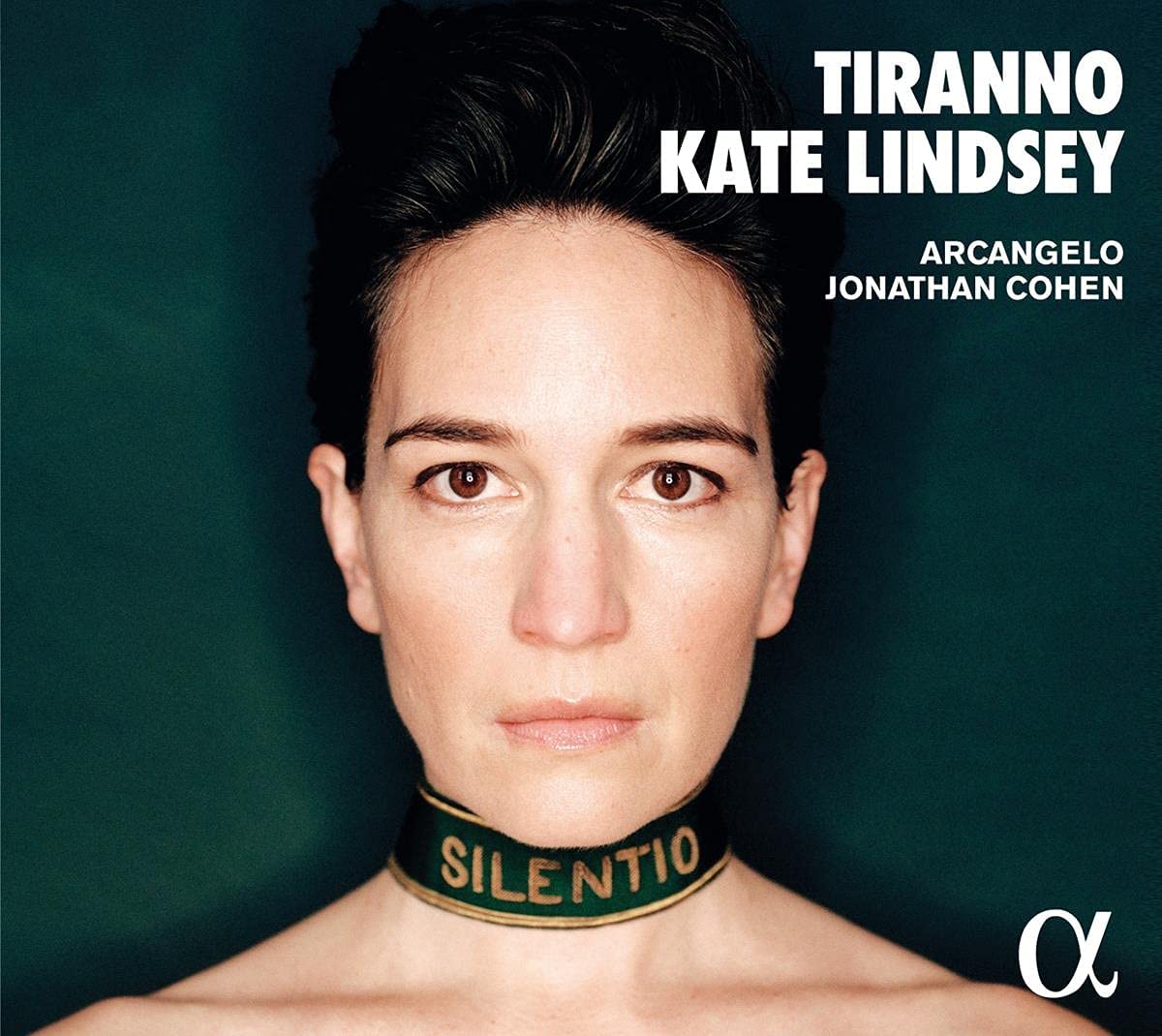Kate Lindsey, [Nardus Williams soprano, Andrew Staples tenor], Arcangelo, Jonathan Cohen
75:34
Alpha Classics Alpha 736
Click HERE to buy this on amazon.co.uk
[These sponsored links help the site remain alive and FREE!]
The tyranny of the title is that of the infamous Emperor Nero, coincidentally the subject (as I write) of a new exhibition at the British Museum that seeks to redress at least some of the infamy associated with his name. Unsurprisingly there is little redemptive in this collection featuring extracts from Monteverdi’s L’incoronazione di Poppea and a group of cantatas from the late 17th and early 18th centuries, the most famous of which is the youthful Handel’s superbly freewheeling drama Agrippina condotta a morire, the confused and tormented words of Nero’s mother following her condemnation to death by her son. The locus topos of two cantatas by Alessandro Scarlatti could not be more different, Il Nerone finding the emperor in full tyrannical flow, ordering the death of his mother, his wife Ottavia and his old teacher Seneca, while his own death is the subject of La morte di Nerone, claimed as a first recording and obviously an early work since its arias are brief strophic verses rather than the usual da capo structures of the mature cantatas. Finally, and placed with little apparent sense of irony after the extreme sensuality of ‘Pur ti miro!’ (the final duet of Poppea), comes La Poppea by the little-known Bolognese composer Bartolomeo Monari (1662-97), a cantata recounting the lurid death of the pregnant Poppea following reputedly being kicked in the stomach by her husband. The work itself, incorporating both narrative and the words of the dying Poppea herself does not match the grim scenario, being relatively tame and concluding with a moralizing aria on the transience of beauty, a favourite trope of the period.
It goes without saying there is scope for highly dramatic interpretation in much of this music, dealing as so much of it does with extreme emotion. American mezzo Kate Lindsey has seemingly built a considerable reputation as a dramatic actress in a wide operatic range and employs it to the full here. Sadly it’s thoroughly 21st-century drama, at times, especially in the Handel, reducing the music to something like a modern psycho-drama, replete with overwrought self-indulgence and a vulgar use of portamento and other mannerisms, that quite forgets the ease and naturalness that the singing masters of the period expected. Ironically, it comes in the company of poor diction, one of Lindsey’s besetting sins and a particularly serious one in this repertoire. This is especially true of plain recitative, where the approach is too cantato and the tempo at times too slow.
Otherwise, my feelings on Lindsey’s singing are somewhat mixed. Were the programme to be judged on the basis of the opening Scarlatti cantata (Il Nerone), it would almost surely be dismissed by me out of hand, for the vibrato here is wide and near consistent, the interpretation highly mannered. Curiously, however, in more restrained moments and particularly when employing a lovely mezza voce in the middle range there is markedly less vibrato in evidence. Indeed a break in the voice at times gives the disconcerting impression that we are hearing two quite different voices.
The anachronistic character of these performances suggests they are unlikely to have great appeal to specialist readers of EMR. The Monteverdi and Monari are certainly better in this respect, though Ottavia’s ‘Addio Roma!’ brings a fresh outburst of frenetically undisciplined singing. Lindsey is effectively supported in the Poppea extracts, especially by Nardus Williams in ‘Pur ti miro!’, rather less so by the continuo players of Arcangelo, whose thrumming theorbist is a near-constant irritant.
Brian Robins
